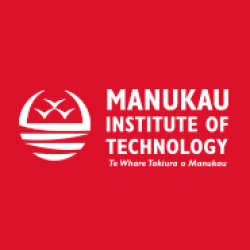
How to Increase Student Retention and Success: A Systematic, Evidence-Informed Approach
Status
Completed: 7 May 2012
Project Details
A project completed in 2012, undertaken by Manukau Institute of Technology, to establish effective organisational practices at Manukau Institute of Technology (MIT) to improve retention and success within the New Zealand context and with reference to the international research.
Aims:
The main aims of the project from an institutional perspective were to:
- develop a robust moderation process with regular external participation
- provide practical help to lift student results through programme improvement
- ensure transparent availability of student outcomes data
- establish a culture of continuous improvement.
Methodology:
The project methodology involved:
- a review of the literature
- a cycle of self-evaluation which was used with each of the eight elements of student engagement: recruitment, first contact with learners, orientation, using diagnostics/placements, improving teaching and learning, improving assessment, pastoral care, and understanding destinations (work, further study).
Team

Dr Helen Anderson
Manukau Institute of TechnologyStatus
Funding
$8,700.00 (excl GST)
Key Findings
The key findings from the project included:
- The pilot studies demonstrated the effectiveness of an approach that focused on: programme improvement using the student cycle of engagement; lecturer ownership of the process; collaboration across successful and unsuccessful programmes; completeness of institutional processes (business as usual); an evidence, analysis, plan, implement, evaluation cycle.
- The outcome of this work at MIT to the end of 2010 has been a significant improvement in programme performance across all programmes evidenced in the TEC EPIs for 2010 where the goal of 80% mean pass rate was achieved. Any programme falling below benchmarks was inquired into promptly; responsibility for programme outcomes sat with those who are best placed to generate improvement, i.e. the programme committee and the lecturing staff, and there is a sense of ownership across the staff.
- A process was developed and refined so that it became routine to use the following steps as the required action for all programmes scoring below the institute benchmark and for those that were declining: leadership commitment; information and action; implementing workshops to support programme leaders and lecturers to design and implement their own improvement plans.
- Critical to success in establishing high performance of programmes and thus high rates of success for students’ sustainability over time is an attitudinal shift. This shift is from “rescuing and blaming” and the inaction that results from such attitudes to a commitment to evidence-based continuous improvement. This commitment is expressed in a series of actions that shift an organisation from a time bound focus on better outcomes to an organisational process that delivers responsiveness, accountability and persistent success.
- At the heart of this approach is the determination of an organisation’s leadership to expect high performance and act when this expectation is not met. While a united approach from the leadership team is essential, the success of this approach is also dependent on having a champion within the leadership team who maintains the overall strategy and links effectively with implementing staff.
Key Recommendations
The key recommendations from the project related to institute processes to ensure sustainability and included:
Academic policies | Rewrite the academic policies to embed the principles of continuous improvement and to identify the actions that must be taken when a programme does not meet institute benchmarks.
Academic plan | Develop an Annual Academic Plan that identifies annual targets for Academic Performance and the strategies for achieving these. The plan should be developed annually under close consultation with Faculties and its outcomes reported to the Academic Board in an annual cycle.
Programme reports | An Annual Programme Report that includes action plans and their outcomes developed in the workshop process. An annual action cycle where annual programme reports are discussed by Heads of School/Deans with the Academic Leadership where plans to address low performing programmes are agreed to, recorded, actioned and followed up. Actions may include formal review, programme improvement workshop, closing the course or programme.
Professional development | An outcome of the MIT focus on the quality of programmes through the programme improvement strategy has heightened interest in professional development opportunities. To ensure sustainability of the focus on self-determination for lecturers in their quest to improve student outcomes, it becomes important to provide excellent professional development that is forward thinking and innovative. Therefore, strengthen access to and quality of professional development of lecturers to support the skill sets and capabilities essential to reaching and sustaining a high level of programme/student success.
Industry engagement | The programme improvement process highlighted the need for a strong industry engagement process to ensure student confidence in the relevance of the programme to their career goals. This prompted a rebuild of the industry engagement process to ensure that programmes are current, relevant and engaging.
Appraisal | Rewrite the annual appraisal cycle criteria for lecturers to reflect the learning and teaching values of the organisation as they are needed to develop and deliver excellent programmes that have high rates of student success. Without this step, the focus on quality can be diverted by issues of funding, unions and competing priorities.
New approach | The new approach was characterised by a ‘join up the dots’ strategy that needs every element in place – accurate accessible data, well-informed effort on programme improvement, significant professional development, requirement to report and an attitude that when things go wrong they should be inquired into and decisions made based on evidence.
A research report prepared by Helen Anderson.
(PDF, 455 KB, 16-pages).
- 1 May 2012